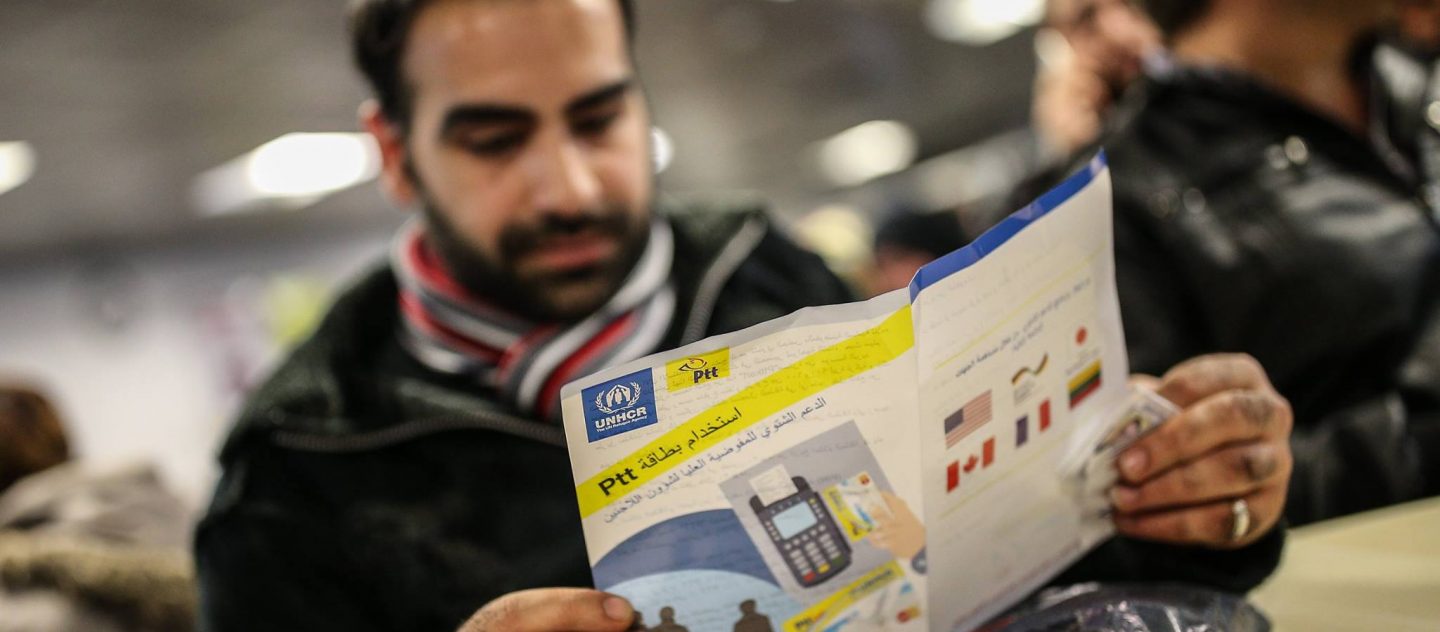When people are forced to flee their homes, they leave with the bare essentials. They also lose their ability to earn and spend in the process. Our cash-based interventions (CBIs) seek to protect refugees by reducing the risks they face and to maintain their capacity to spend. CBIs can be used in a variety of settings, as long as there is a stable market and a safe way to provide refugees with cash or vouchers. The flexibility that CBIs offer makes them a more dignified form of assistance, giving refugees the ability to immediately prioritize and choose what they need.
Cash-based interventions make the displaced less likely to resort to harmful coping strategies. They also directly benefit the local economy and can contribute to peaceful coexistence with host communities.
UNHCR responds to basic needs of persons of concern to UNHCR through the distribution of one-off payments through preloaded debit cards during the winter season and by supporting vulnerable refugees through regular cash transfers via debit cards or NFIs if a special need is identified. Additionally, UNHCR supports the Turkish government to cover basic needs in the refugee camps through the distribution of NFIs.
For the winter of 2016/2017, UNHCR’s winter support programme in Turkey consisted of one-off cash assistance via pre-loaded debit cards for refugees living in urban areas, and provision of winter items to those living in camps and some vulnerable non-camp refugees. UNHCR provided about 34 million dollars worth of winter support to more than half a million refugees, of which 25.5 million dollars was provided to urban refugees in the form of pre-loaded debit cards and $8.5 million in the form of NFIs (winter clothes, heaters, and blankets) to the camp population. In 2016, UNHCR provided NFIs (tents, hygiene kits, winter support, etc.) worth about 24 million dollars to the camp and non-camp population.
To promote a coherent and coordinated approach to the Basic Needs sector in Turkey, UNHCR is co-coordinating the Basic Needs Working Group with WFP on national and sub-national level. Under this group two task forces were created, one to support the implementation of the Emergency Social Safety Net (ESSN) chaired by WFP and Turkish Red Crescent (TRC) and another one to plan the seasonal assistance during the winter months chaired by IOM. With support from UNHCR, the Basic Needs Working Group initiated a joint shelter/WASH assessment to highlight shelter needs in the South East.

